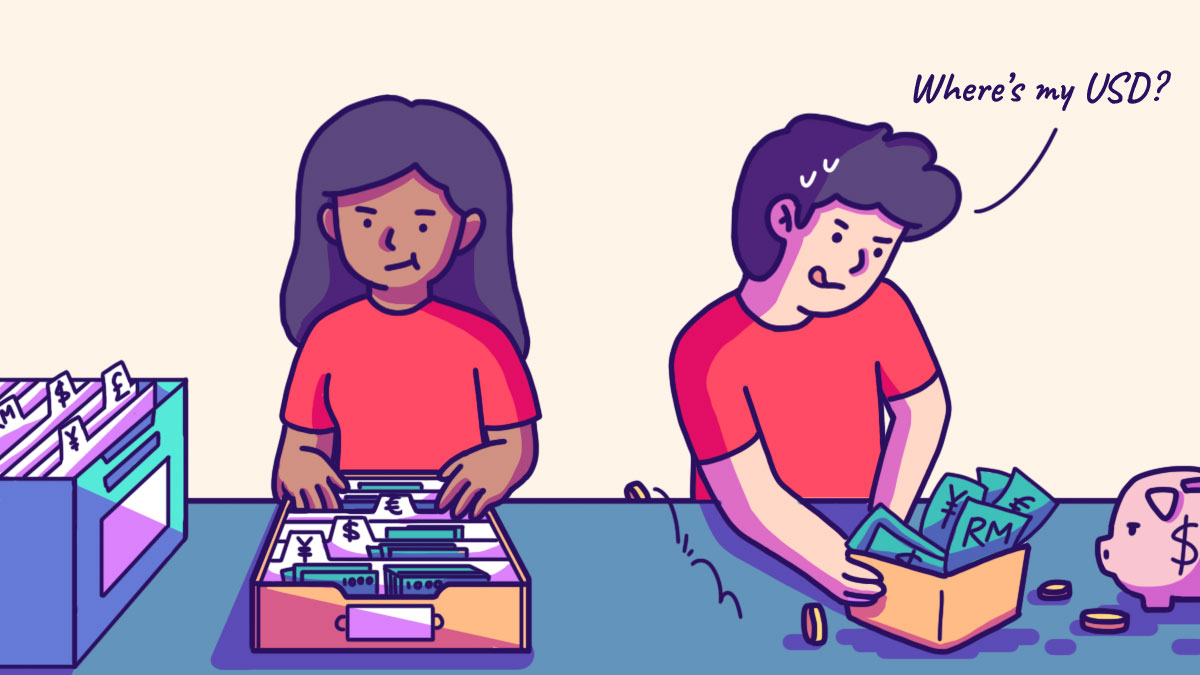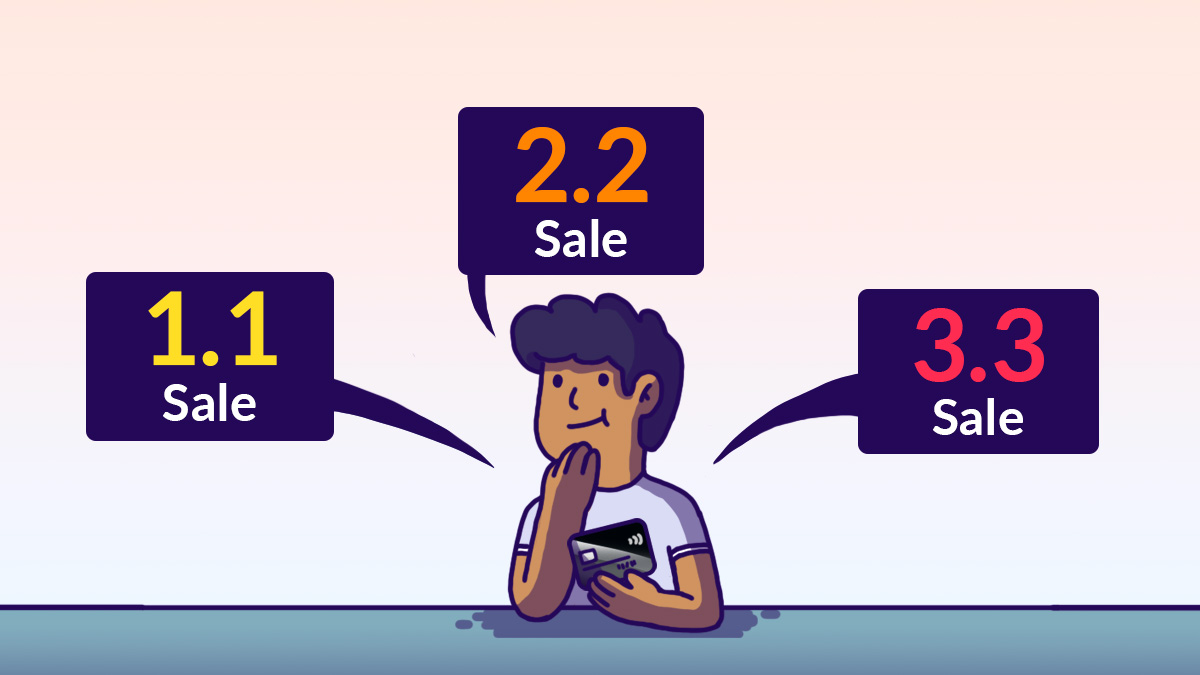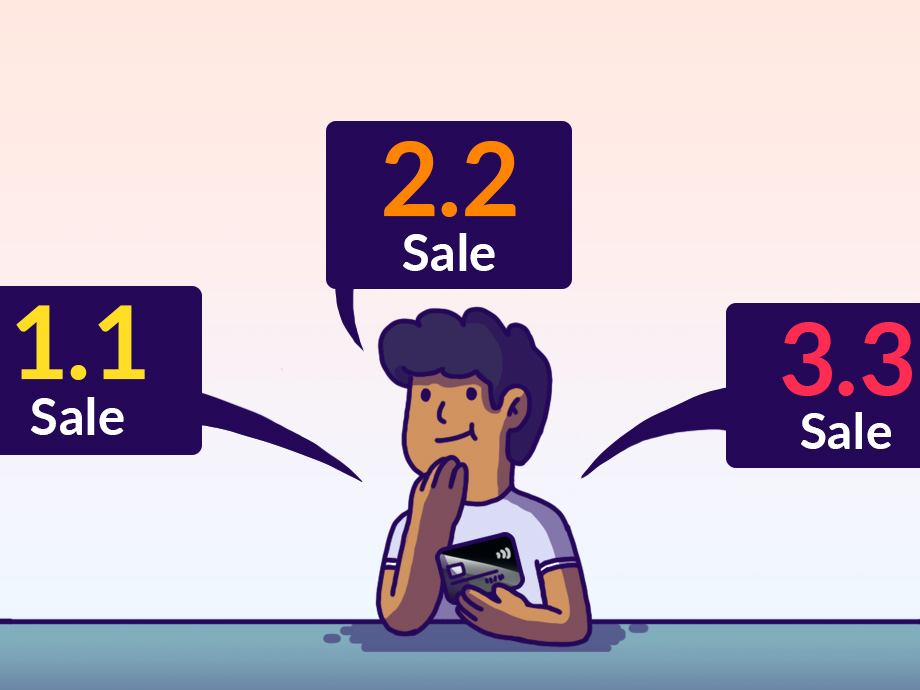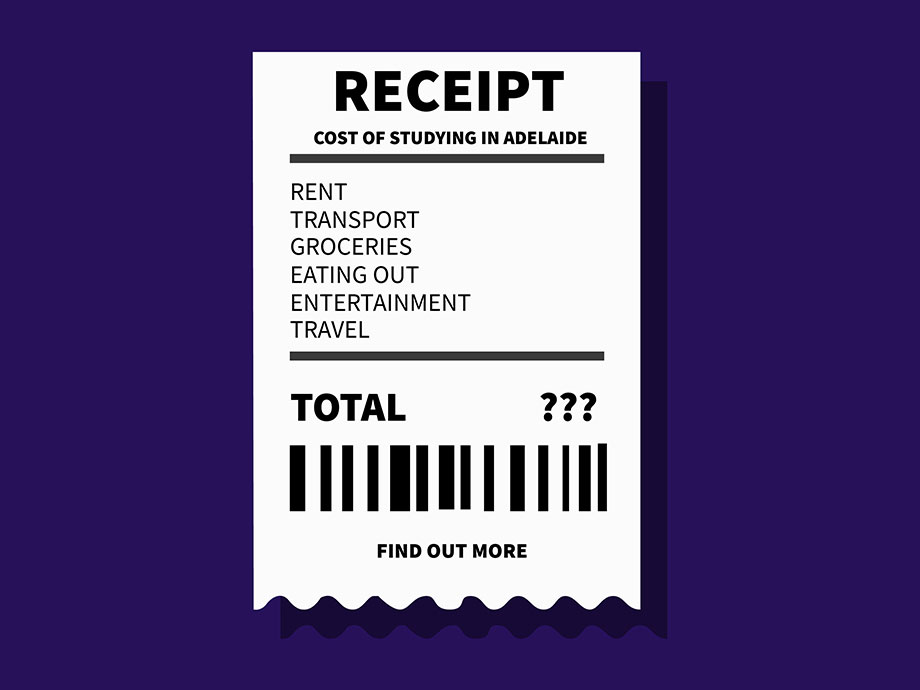#HackIt | Lifestyle | Travel | Article
Ways to Use a Multi-currency Account
by The Simple Sum Team | 19 Nov 2021 | 8 mins read

This article is sponsored by HSBC for the HSBC Everyday Global Account
In a global world where people are connected to each other in ways like never before, our financial transactions are following suit.
Changing your money to a different currency is no longer constrained to trips to the money changer, and using foreign notes isn’t just for actual travel anymore. With online shopping, travel, investing, and e-commerce opportunities growing in popularity, transacting directly in different currencies from wherever you are, is fast becoming the norm.
In recent years, “multi-currency” has become a buzzword which allows everyone to transact using different currencies. It essentially enables your banking to be borderless, with limitless opportunities.
And if you think multi-currency accounts are just for big-time business people who require it to transact in various currencies, think again. Everyday people like us can benefit from having a multi-currency account as well.
Firstly, what is a multi–currency account?
As its name suggests, a multi-currency account integrates different functions and currencies into a single account. It functions like a normal bank account in that it allows you to perform the usual transactions such as deposit, withdrawal, transfer and store money – but with different currencies.
It does away with money changers and having to open a separate bank account for every currency you deal in. You’ll be saving yourself from the hassle of holding and managing multiple bank accounts here or abroad. It will also help you handle your transactions efficiently as everything is accessed and transacted on one account. And such multi-currency accounts come paired with a debit card that you can use locally and abroad, which essentially now extends your ability to transact in multiple currencies in a more convenient way. In fact, you could say it is like having a bank, money changer and forex trading account all rolled into one.
How can you use a multi-currency account?
Sending money to family and friends

A multi-currency account allows you to transfer or receive money directly, pay bills locally and in the local currency. This is helpful for those who are working abroad and need to send money home, or the other way round, for example, if you are a parent who needs to transfer money to your child studying abroad such as Australia or the UK for international education tuition fees, accommodation and daily expenditure.
Traveling
Before setting out on any trip, whether for business or leisure, we often face this dilemma: how much foreign currency should we change?
Should you need cash for small purchases like food or souvenirs, you can simply use a multi-currency debit card to withdraw cash in the local currency. Or instead of carrying wads of cash around, you can also choose to use your debit card to pay for things like train tickets or museum tickets.
Such withdrawals and transactions are usually free when you have a multi-currency debit card, where you can pay in that local currency with no added withdrawal or conversion fees. Each transaction is also reflected in real-time, allowing you to budget better, during your travels. Plus, using a debit card that also gives you cashback or rewards is a welcomed bonus!
Overseas shopping
One word always goes with travel – shopping. When you save on currency conversion fees, purchasing items from multiple overseas platforms will make shopping easier, and a lot cheaper!
Multi-currency accounts enabled with a debit card would mean your overseas shopping is much more seamless. By allowing you to transact in selected currencies, when you buy that leather bag in USD whether you are physically there or via a global ecommerce website, you know you’ll save by avoiding those hefty foreign exchange fees.
If that is not reason enough to have a multi-currency account, many banks also offer cashback when you spend on retail or online shopping sites.
Getting paid
The gig economy has been a buzzword since the pandemic started. In 2019, the Ministry of Manpower reported that there were 211,000 freelancers in Singapore, which makes up 10% of all employed residents. That number is said to be higher now.
So, for gig workers looking to expand their clientele beyond their own shores, a multi-currency account allows them to be paid in the local currency of each client. That eases workflow and payments and, hopefully, will bring in more international jobs and gigs.
Gaining an advantage in foreign currency transactions
Customers can keep abreast with currency rates in real-time using mobile and banking apps. Being time sensitive is essential if you want to capitalize on fluctuations in currency values.
Most multi-currency accounts also allow users to lock in and store currencies when it reaches a favored rate. This means that when a currency reaches a predetermined rate, you can make a foreign currency exchange conversion and store the currency in your account. This protects your money against exchange rate fluctuations which in turn can stretch your earnings from your investments or interest earned.
Related
Content sponsored by HSBC
A message from our sponsor:
As we become more connected, multi-currency accounts like the HSBC Everyday Global Account (EGA) helps you to travel and pay like a local.
HSBC EGA paired with a HSBC Everyday Global Debit Card allows you to make transactions in 10 currencies on your retail purchases, online shopping and cash withdrawals at a S$0 fee1,2
As a HSBC EGA holder, you also get access to HSBC Global Money Transfers (GMT) which enables secure, faster and fee-free3 international money transfers with real-time and competitive foreign exchange rates4. You can send money like a local to over 20 countries/territories, transfer money to China via UnionPay cards5, send money to third-party HSBC accounts in over 20 countries/territories and send wires to over 200 countries/territories via SWIFT, all with just a few taps on the HSBC Singapore app.
HSBC EGA also comes enhanced with the HSBC Everyday+ Rewards Programme6, which rewards you on your everyday transactions as follows:
| HSBC Personal Banking | HSBC Premier & Jade | |
| Salary / recurring deposit | Minimum $2,000 | Minimum $5,000 |
| Make 5 transactions (initiated by you, not system generated transactions) | ||
| Spend on debit / credit cards | 1% cashback* | 1% cashback** |
| Make GIRO bill payments | 1% cashback* | 1% cashback** |
| Increase your SGD balance from previous month | 1%p.a. bonus interest
(Capped at S$300 per month) |
1%p.a. bonus interest
(Capped at S$300 per month) |
| One-time bonus cash after 6 months | S$150
(Average account balance must be at least S$100k) |
S$300
(Average account balance must be at least S$200k) |
*Capped at S$300 month
**Capped at S$500 per month
Apply for a HSBC Everyday Global Account (EGA) today.
Disclaimer
This article is meant for information only and should not be relied upon as financial advice. This advertisement has not been reviewed by the Monetary Authority of Singapore.
1 Applies to successful retail purchase, online shopping and cash withdrawal made via the 10 supported currencies. If you do not have sufficient foreign currencies to complete the transactions, we will convert the transaction at a prevailing rate as determined by the bank and bill you in Singapore dollar. (Source)
2 HSBC Jade and Premier Everyday Global Debit Card Cardholders enjoy $0 HSBC ATM fees for overseas cash withdrawals across all ATMs worldwide. HSBC Personal Banking Everyday Global Debit Card Cardholders enjoy $0 HSBC ATM fees for overseas cash withdrawal at all HSBC ATMs except in Argentina, France, Brazil, Greece, Malta, Mexico, New Zealand and Turkey. HSBC Fees apply for cash withdrawals at non HSBC ATMs. Please note that for all customers, fees may be applied by the 3rd party banks for cash withdrawals at non-HSBC ATMs worldwide. (Source)
3 Most transfers are fee-free but some intermediary banks may charge fees. You can see an estimate of the applicable fees when you review your transfer. The actual amount is subject to the intermediary bank and will be debited after you’ve confirmed your transfer.
Some banks may charge for incoming international transfers. Your payees will need to check with their banks on these charges as they vary and will be debited from the payee’s account. We are unable to advise you on the fees applied by other banks for payments sent through Global Money Transfers. (Source)
4 Real-time rates are available from Monday at 09:30 until Saturday at 05:00 Singapore Time, excluding bank holidays.
Foreign exchange transactions performed over the weekend and public holidays are subject to a higher bank spread compared to weekday transactions, as markets are closed during these times.
5 Only via UnionPay cards issued in Mainland China
6 HSBC Everyday+ Rewards Programme’s T&Cs apply. (Source)
Deposit Insurance Scheme:
Singapore dollar deposits of non-bank depositors are insured by the Singapore Deposit Insurance Corporation, for up to S$75,000 in aggregate per depositor per Scheme member by law. Foreign currency deposits, dual currency investments, structured deposits and other investment products are not insured.
Information correct as at [19th November 2021].

















